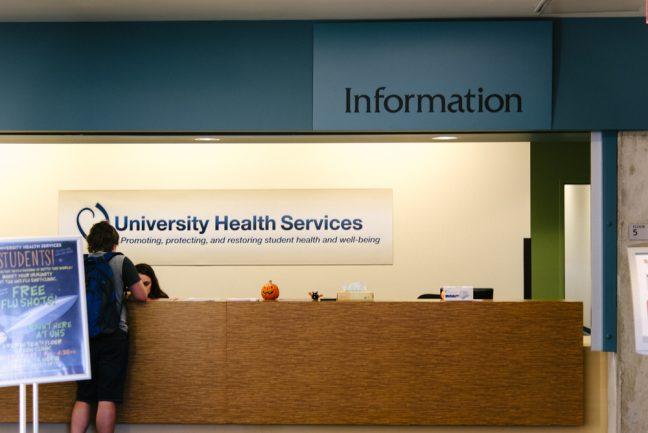Daylight savings time coupled with colder temperatures can put individuals at greater risk for seasonal affective disorder, according to clinical psychologist in the University of Wisconsin School of Medicine and Public Health Shilagh Mirgain.
Symptoms of SAD, a form of depression that primarily impacts individuals during winter months, often align with symptoms that would be shown with major depressive disorder, Mirgain said.
Primary symptoms may include feeling down most of the day nearly every day for at least two weeks, or lost interest or pleasure in things an individual typically enjoys. Secondary symptoms may include fatigue, disturbance to appetite or sleep, moving slowly, feeling more agitated, or cognitive impairment, such as difficulty focusing, according to Mirgain.
About 4-6% of the population experiences SAD, but about 10-20% experience a milder form of the condition — sometimes referred to as the “winter blues,” Mirgain said, citing American Family Physician statistics.
People living further north, in places such as Wisconsin, are more vulnerable to SAD for multiple reasons, including increased darkness, colder temperatures and limited sun exposure, according to Mirgain. These factors can also impact habits formed by individuals over the winter months, which can further contribute to susceptibility of exhibiting SAD symptoms, Mirgain said.
“With the winter, we become more sedentary — we’re not outside as much, and it’s easy to get isolated,” Mirgain said. “Both the weather, very cold and dark, and then also the consequence of winter, that you’re just maybe less active. All those factors can be a risk for lower mood during this time of year.”
Mental health concerns, including SAD, can impact the academic and social experiences of students on campus, University Health Services assistant director of clinical mental health services Beth Adamski said in an email to The Badger Herald.
A Healthy Minds Study conducted at UW in Spring 2022 showed 26% of students screened positive for depression, and four in five students reported that emotional or mental difficulties hurt their academic performance, Adamski said.
Mirgain encourages individuals experiencing SAD symptoms to speak with medical professionals, such as primary care physicians or UHS behavioral health specialists.
“Early intervention is key,” Mirgain said. “If a person is finding that they’re experiencing lower mood or not enjoying things and they’re noticing impairment, like in school, or work, or relationships, reaching out early for help is critical to safeguard one’s mental health and to have really effective recovery.”
Throughout the winter months, individuals can also utilize daily methods to address SAD, including maintaining consistent sleep habits, staying active, eating healthy foods, connecting with others and spending time outside, according to Mirgain.
Feminist Biology Initiative introduces gender-fair research to biology
Supplementation, discussed with a medical professional, can also be helpful, according to Mirgain. This may include vitamin D3 supplementation, as the sun’s rays are not strong enough to allow bodies to produce this nutrient naturally during the winter months, Mirgain said. Utilizing a light therapy box might also be a helpful strategy. Mirgain said physicians often recommend sitting in front of a specific bulb that produces 10,000 Lux units of light for 30 minutes at the same time daily.
Adamski encourages UW students seeking mental health services, including counseling, group counseling and psychiatry services, to schedule services through UHS. In addition to scheduled services, UHS offers mental health support across campus through Let’s Talk sessions.
UW recently expanded hybrid mental health services, including partnering with Uwill, to make virtual therapy available to all UW students.
“This service allows students to connect with a Uwill counselor at no cost to them for a same day or next day appointment, at a time that fits their schedule — including day, night, and weekend appointments,” Adamski said.
Resources regarding mental health:
- View options for mental health services on campus through UHS.
- UHS 24/7 Mental Health Crisis Line (608) 265-5600, option 9
- Let’s Talk sessions are informal drop-in consultations with a counselor and are located in several schools, colleges and student communities across campus.


















